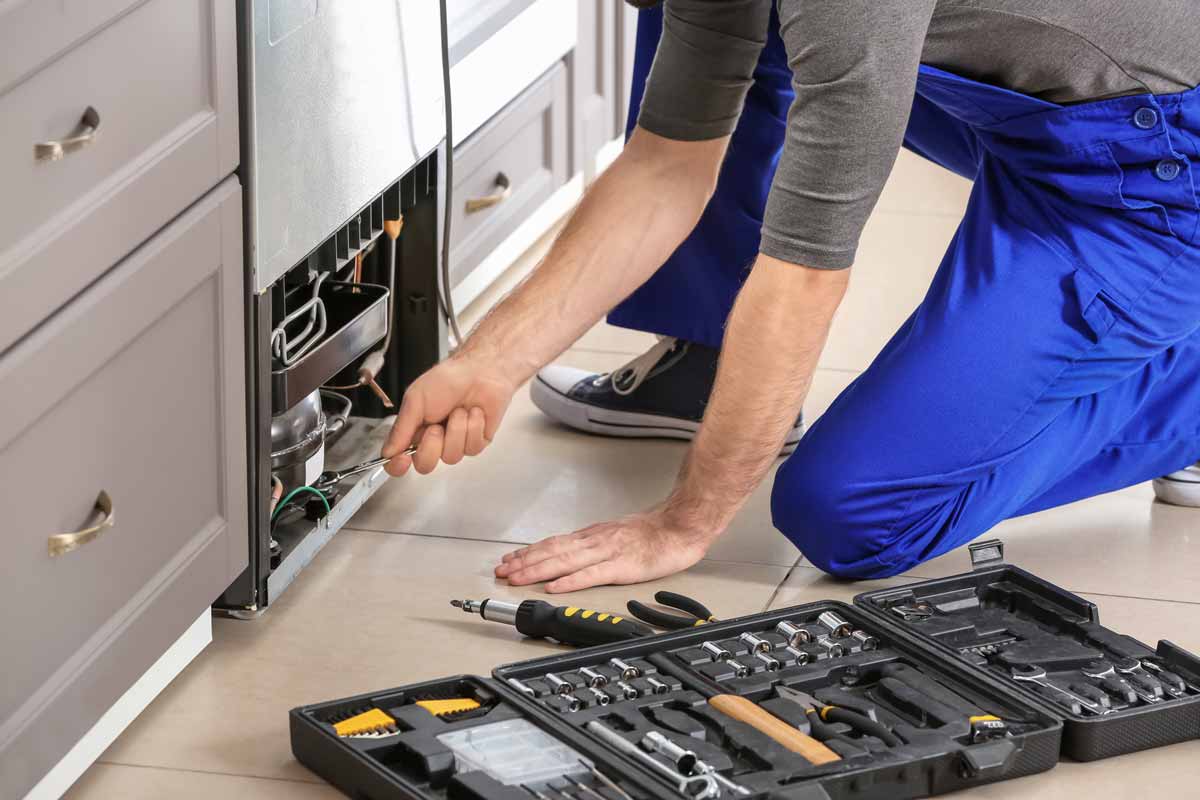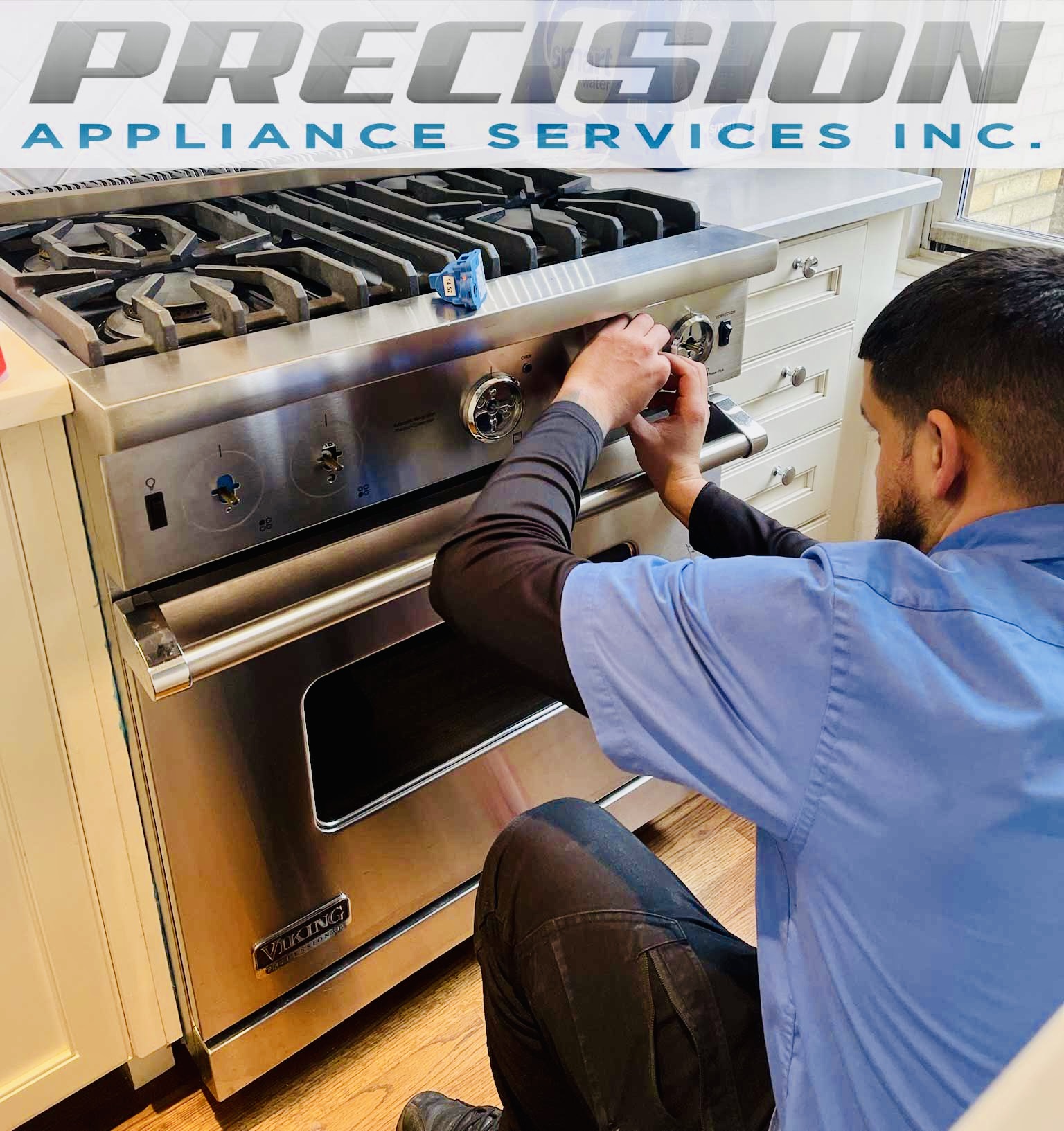Is Your Washer Making Noise? – Dependable Refrigeration & Appliance Repair Service Washer repair near me
Is Your Washer Making Noise? – Dependable Refrigeration & Appliance Repair Service Washer repair near me
Blog Article
The Ultimate Guide to Understanding Device Fixing in your home
When your refrigerator quits cooling or your stove rejects to warmth, it can really feel overwhelming. Understanding device repair in the house can conserve you money and time. You'll find out to acknowledge signs and symptoms, make use of essential tools, and follow a methodical troubleshooting process. Prior to you begin, there are essential safety and security preventative measures you need to take into account. What are the most common troubles, and exactly how can you repair them? Let's explore the basics.
Usual Device Issues and Their Symptoms
When your appliances begin acting up, it's necessary to recognize the indications at an early stage. Disregarding them can lead to bigger problems and costly repair work. For example, if your fridge isn't cooling down properly, you might observe warm areas or condensation forming. This can indicate a falling short compressor or an obstructed vent.Your dishwasher might reveal problems via unclean dishes or uncommon noises during cycles. If you hear grinding or clanking, it's time to investigate.A washing maker that will not spin or drain can leave you with soggy laundry, recommending a clogged drainpipe or a malfunctioning pump.Lastly, if your oven's temperature appears off or it takes permanently to preheat, you could be handling a damaged thermostat. By remaining sharp to these signs and symptoms, you can attend to concerns prior to they rise into significant repair services.
Necessary Tools for Appliance Repair Work
When you're tackling home appliance repair work in the house, having the right devices is vital. Fundamental hand tools like screwdrivers and pliers will help you dismantle and take care of various appliances, while electrical screening gadgets assure you're functioning securely with electrical wiring. Let's go over what you need to start on your repair work journey.
Fundamental Hand Tools
Having the right devices is necessary for efficient home appliance fixing in the house. Begin with a reliable screwdriver collection, consisting of both flathead and Phillips types, as screws are typical in home appliance assembly. Pliers are also essential; they aid with gripping, turning, and reducing cables or small parts. A set of needle-nose pliers can get to difficult situations quickly. You'll require an excellent flexible wrench for tightening up or loosening nuts and screws. An energy blade is helpful for reducing with packaging or insulation. Ultimately, do not neglect a sturdy workbench or surface to securely organize your tools and components. With these basic hand devices, you'll be well-prepared to tackle most appliance repair services that come your means.
Electric Testing Devices
Along with basic hand devices, electrical screening tools play a vital role in appliance repair work. These tools assist you diagnose electric issues and guarantee home appliances work safely. A multimeter is essential; it measures voltage, existing, and resistance, allowing you to identify problems swiftly. A non-contact voltage tester is another must-have, letting you detect real-time cables without making straight call, enhancing your safety. Clamp meters are wonderful for determining current circulation in wires without separating them, conserving you effort and time. In addition, circuit testers can quickly inspect if outlets are functioning properly. By utilizing these gadgets, you'll enhance your troubleshooting procedure and boost your repair work abilities, making device maintenance a lot easier.
Step-by-Step Guide to Diagnosing Home Appliance Issues
When your device acts up, it can be irritating, but identifying the concern does not have to be frustrating. You'll find out to recognize typical problems and apply effective repairing methods. Let's walk via the actions to get your device back in functioning order.
Usual Device Issues

Repairing Strategies Explained

Fixing Major Kitchen Area Home Appliances: A Closer Look
Have you ever questioned just how to take on usual problems with your kitchen home appliances? Repairing significant kitchen area appliances like refrigerators, ovens, and dish washers can be much easier than you assume. Start by recognizing the trouble-- whether it's a fridge not cooling down or an oven that will not heat up. Frequently, an easy reset or inspecting the power source can address the issue.For fridges, tidy the condenser coils and inspect the door seals. If your oven's not heating, inspect the home heating component and thermostat. Dish washers may simply require a clean filter or a reset to obtain them back at work. Constantly unplug the appliance before diving right into repair work to guarantee your safety.Don' t fail to remember to consult the customer guidebook for details troubleshooting ideas associated to your design. With more info a little persistence and the right devices, you can with confidence tackle device repair services and conserve cash in the process!

Troubleshooting Washing Appliances: Tips and Techniques
When your laundry devices begin breaking down, it can feel frustrating, yet fixing them does not have to be a hassle. Start by inspecting the power supply. Verify the home appliance is plugged in and the electrical outlet is working. Next, examine the door or cover switch; a damaged button can protect against the equipment from operating.For washers, if it's not spinning, check for out of balance loads. Redistributing the clothes might resolve the problem. If your dryer isn't home heating, clean the dust filter and examine the vent for blockages.Listen for unusual sounds; they can indicate a trouble. If your home appliance is leaking, inspect the hose pipes for cracks or loosened links. Record any type of mistake codes displayed on electronic displays, as they can guide you in identifying the concern. Seek advice from the user manual for specific troubleshooting tips connected to your model.
Security Precautions to Take Throughout Fixes
Prior to you start any kind of appliance repair work, it's necessary to focus on safety to stop crashes or injuries. Disconnect the device or turn off the circuit breaker to guarantee no power reaches it while you work. Usage protected tools to minimize the danger of electric shock. Wear safety and security goggles and gloves to safeguard yourself from sharp sides or debris (Dryer repair Oro Valley Dependable Refrigeration & Appliance Repair Service).Make certain your workspace is tidy and well-lit, so you can see what you're doing. Maintain kids and pets away from the location to stay clear of distractions and possible dangers. If you're managing gas home appliances, be additional careful; look for leaks prior to proceeding.Take your time, and do not hurry through repair services. If you really feel unclear about any action, it's better to stop briefly and study than to think. Following these safety measures will assist create a much safer atmosphere for your DIY device repair project
When to Call a Specialist for Aid
Just how do you know if it's time to employ a specialist for device repairs? If you've tried fundamental troubleshooting without success, it's a clear sign. For instance, if your home appliance still won't begin or reveals uncommon sounds after resetting it, do not wait to look for specialist help.When you see leaks, smoke, or shedding scents, prioritize safety and security and call a pro quickly. These problems can result in even more significant damage or pose threats to your home.Also, if your appliance is under warranty, contacting a professional is usually the most effective course. They can ensure that fixings won't nullify your guarantee, conserving you money in the lengthy run.Finally, if you're unsure or uneasy with intricate repair services, it's important to leave it to the specialists. Remember, tackling complex problems without the best knowledge can lead to expensive errors. Trust an expert when in doubt!
Frequently Asked Questions
Just How Can I Avoid Home Appliance Problems in the Future?
To stop appliance issues in the future, you must do regular upkeep, look for deterioration, clean filters, and stay clear of overloading. Staying positive will certainly help prolong their life-span and keep them running efficiently.
What Are one of the most Common DIY Device Repair Mistakes?
You might overlook safety and security precautions, avoid troubleshooting actions, or make use of incorrect tools when trying do it yourself appliance fixings. Rushing the procedure or disregarding producer guidelines can cause even more significant issues and costly blunders. Stay person and informed!
Exactly how Do I Know if a Part Requirements Substitute?
You can inform if a part needs substitute by inspecting for unusual sounds, leakages, or inconsistent efficiency. If the home appliance has a hard time to operate correctly or reveals noticeable damages, it's likely time for a replacement.
Can I Use Generic Components for Appliance Repairs?
Yes, you can utilize common parts for device repair services, yet ascertain they work - Dependable Refrigeration & Appliance Repair Service Washer repair near me. Generic parts might conserve you money, however they might impact performance or longevity, so consider your choices thoroughly prior to choosing
What Guarantees Cover Home Appliance Repair Works?
Many appliance warranties cover repairs for producing problems, however they often exclude damage from abuse. Examine your service warranty terms carefully, as some could need using certified specialists and original parts for coverage to remain valid.
Report this page